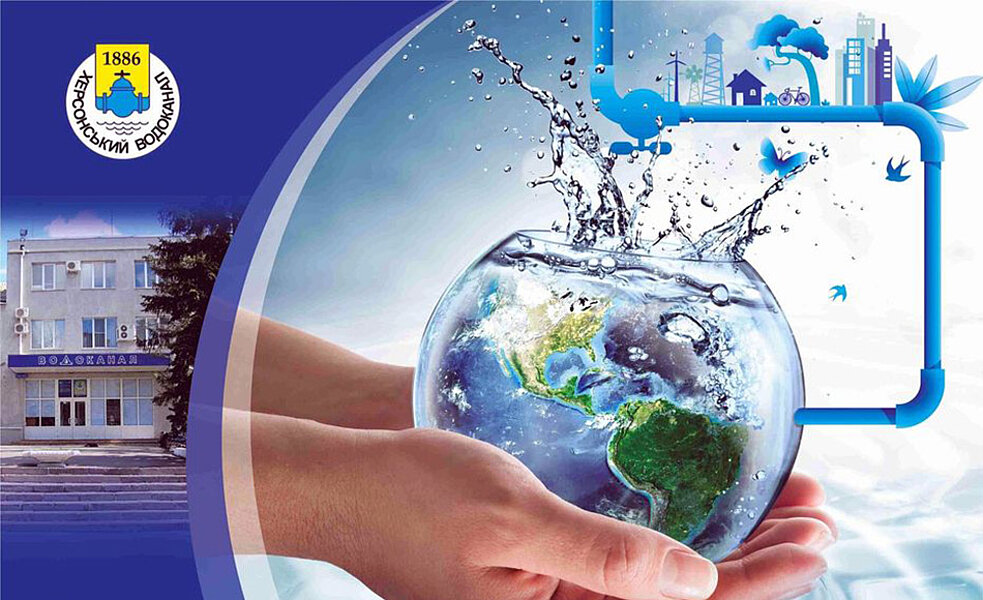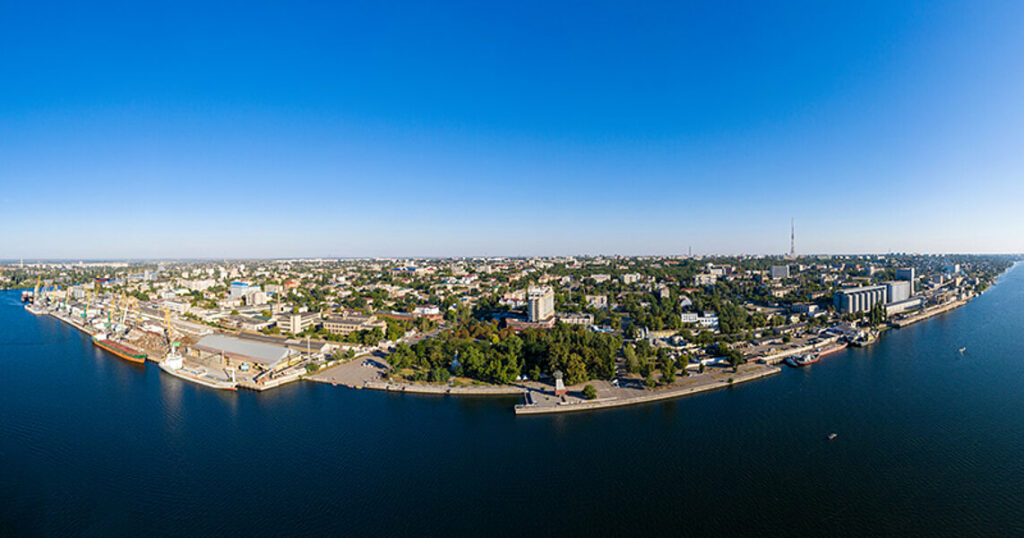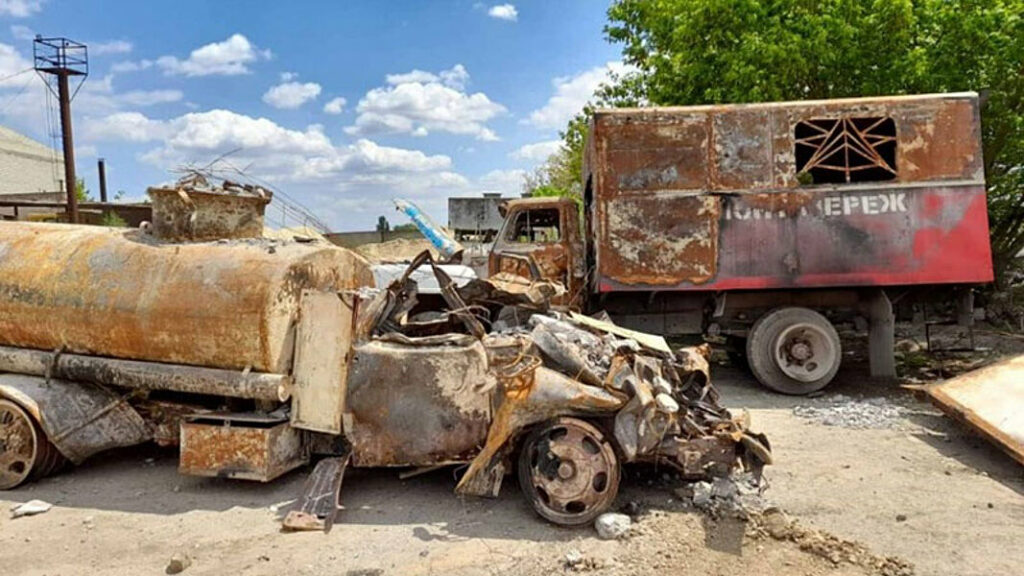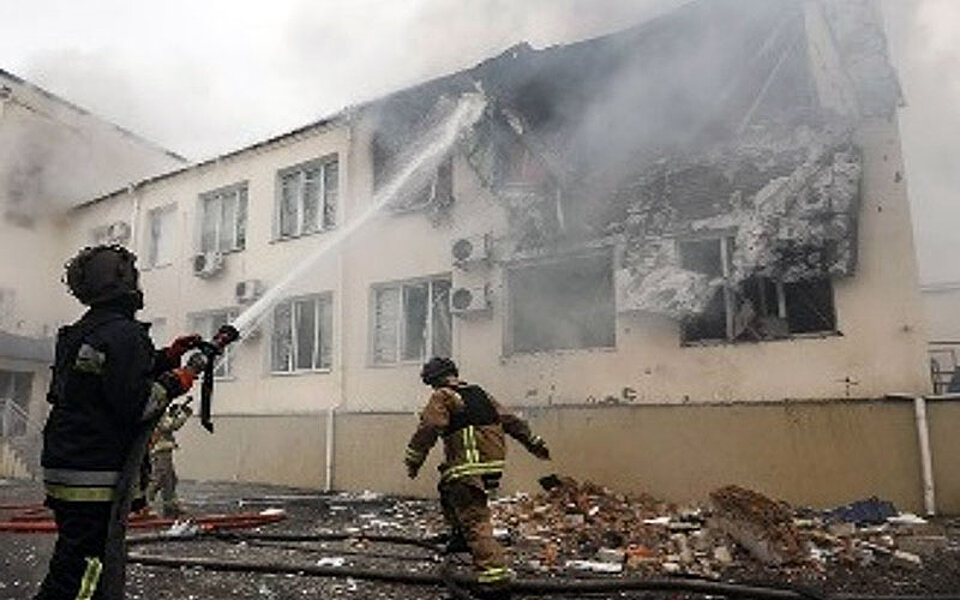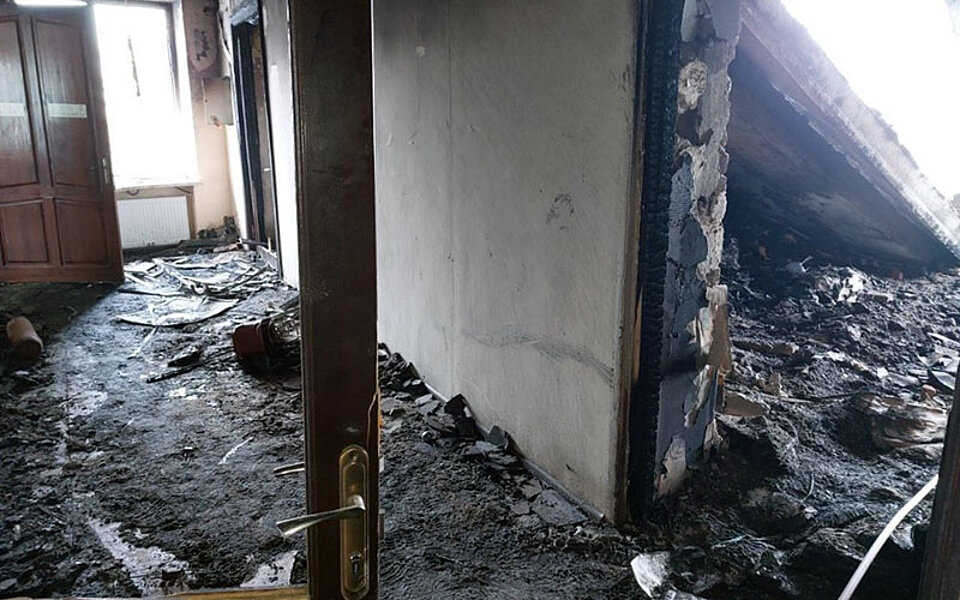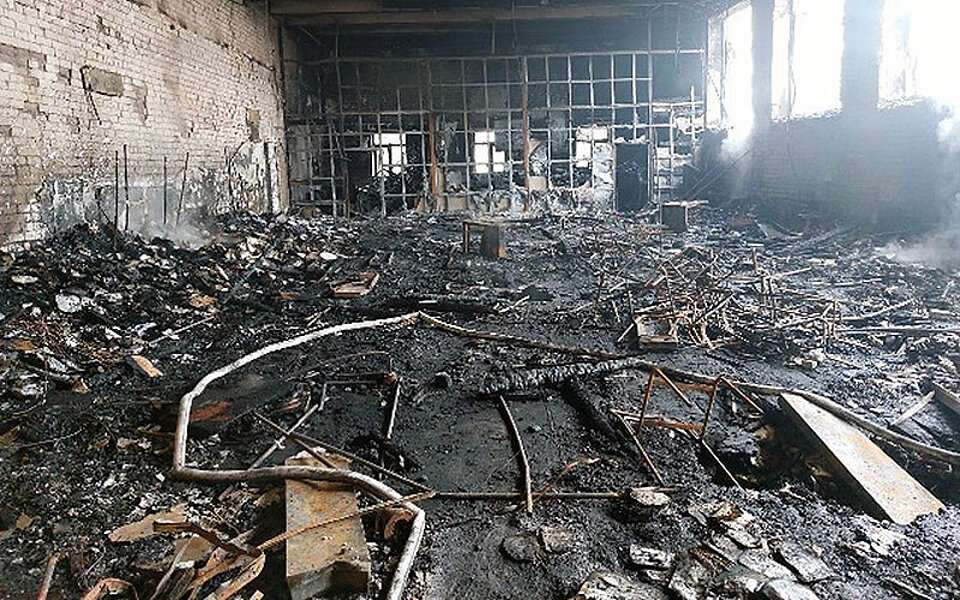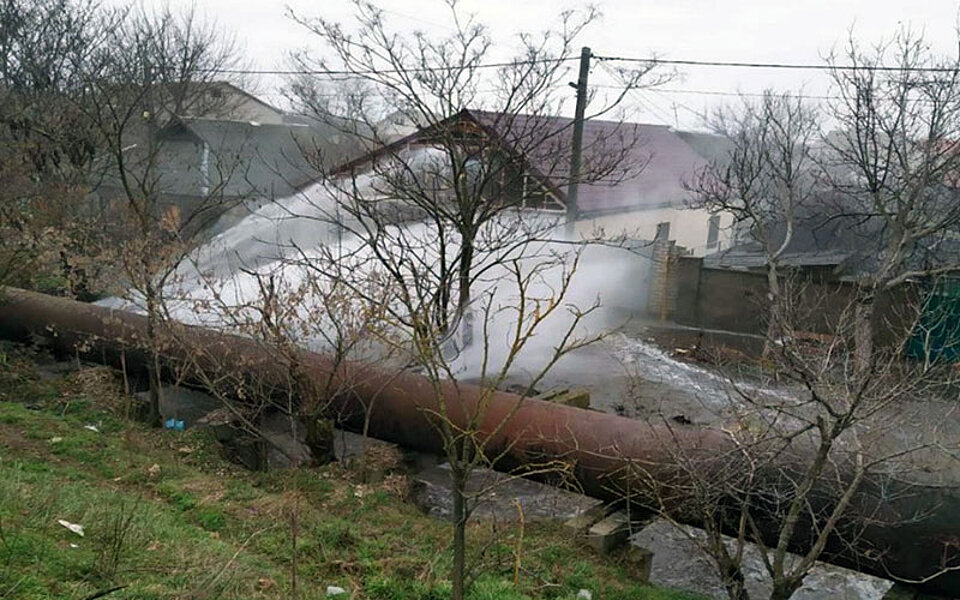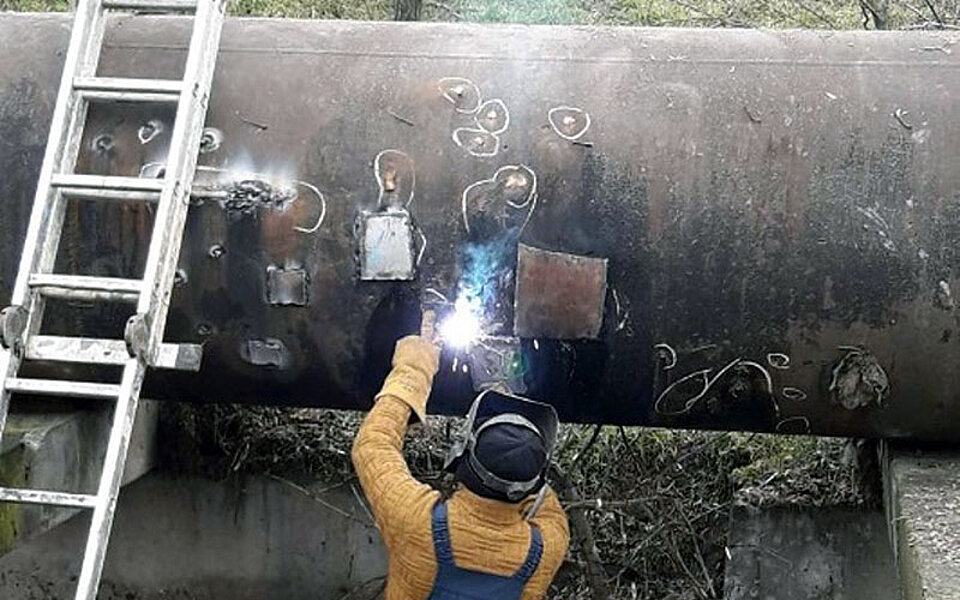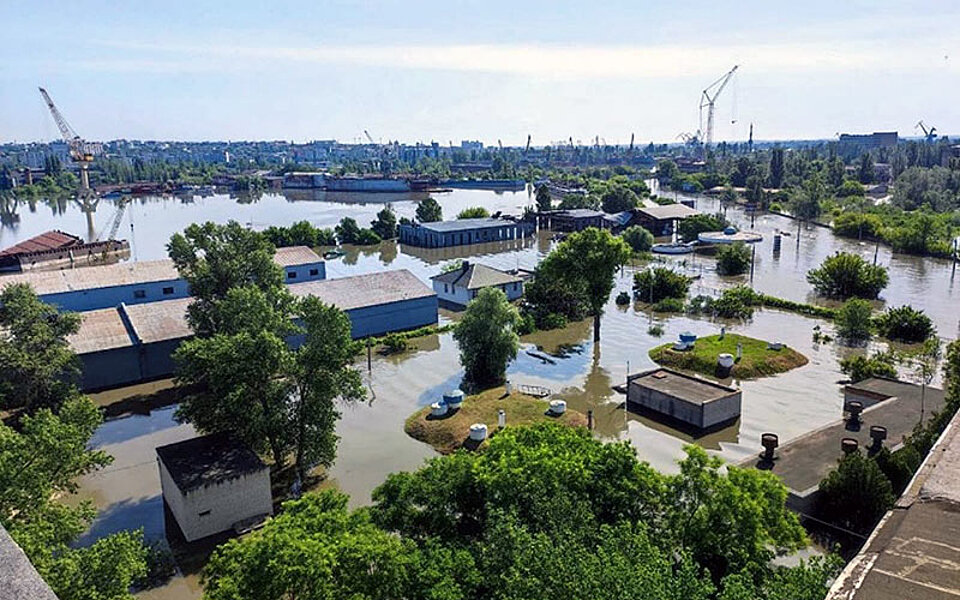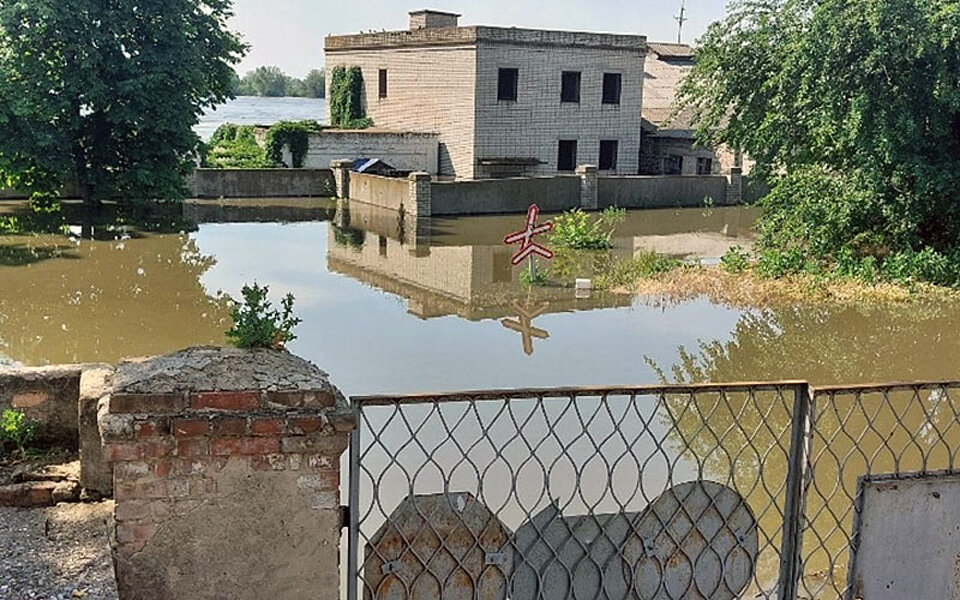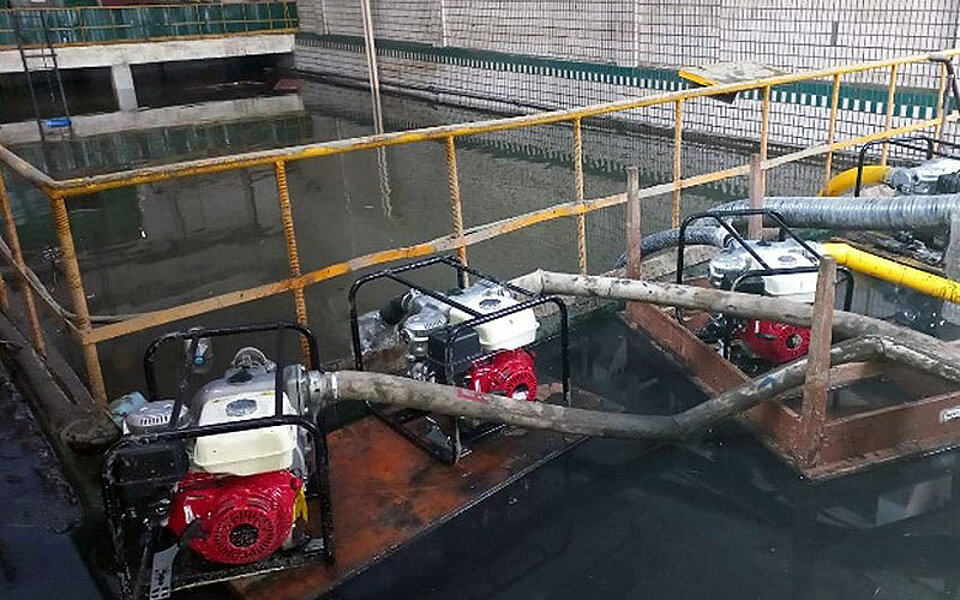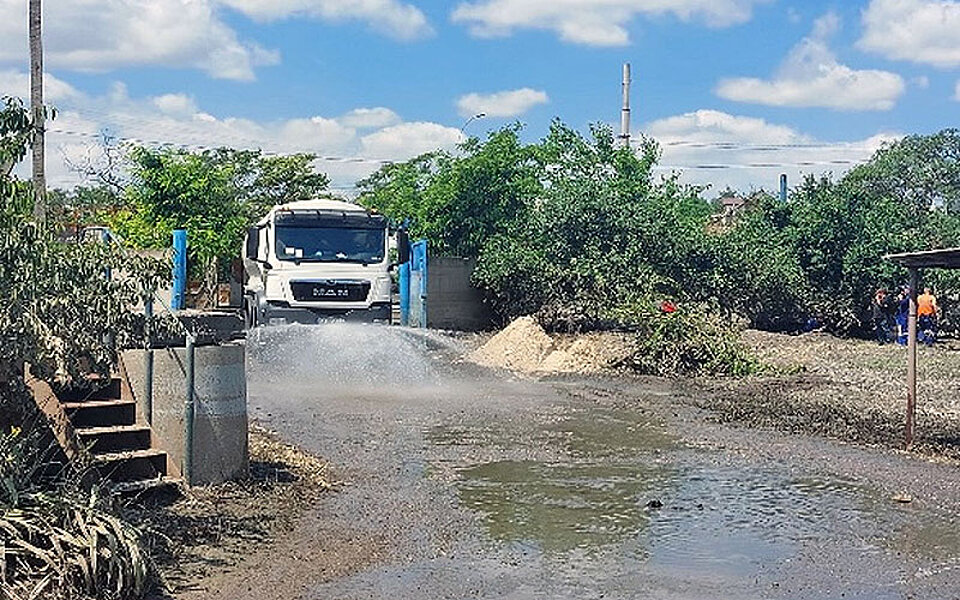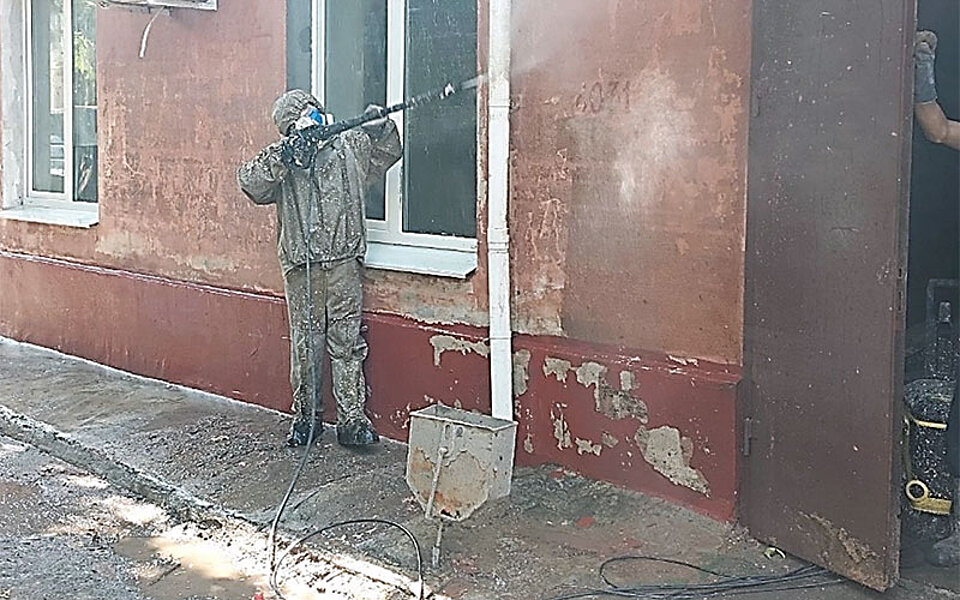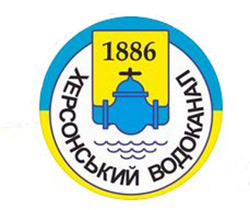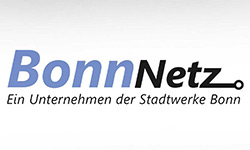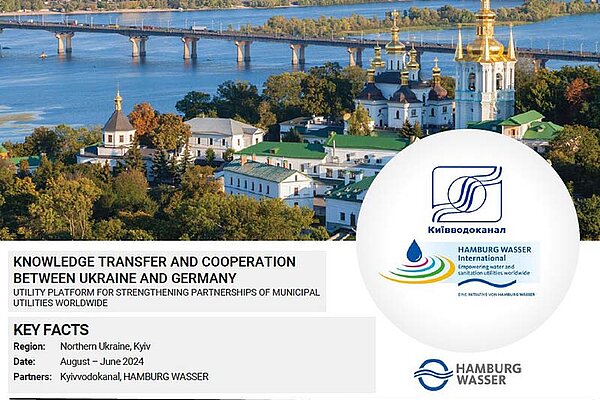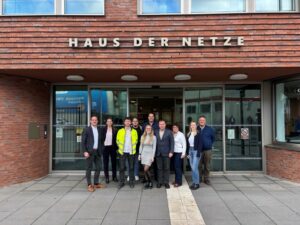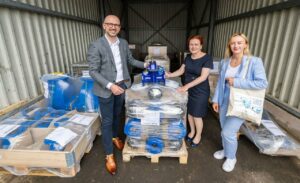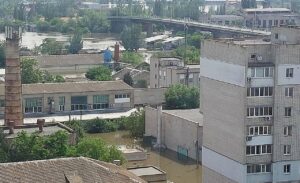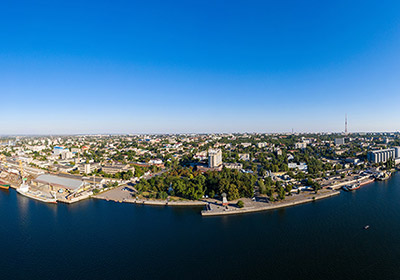The project
Kherson is located at the beginning of the delta of the Dnipro River in south-east Ukraine. It is around 30 kilometres from the Black Sea. Before the escalation of the Russian war of aggression against Ukraine on 24 February 2022, the city had a population of just under 300,000 people. At the end of January 2023, the number of remaining inhabitants was estimated at around 40,000.
Since the escalation of the war, the city’s civilian infrastructure has been severely damaged, including many of Khersonvodokanal’s facilities, pipelines and vehicles, including the administration building and digital networks. Kherson was occupied by Russian troops on 3 March 2022. During the withdrawal of Russian troops on 9 November 2022, large quantities of equipment, such as vehicles, servers, computers and printers, were stolen. Following the destruction of the Kakhovka Dam on the Dnipro River on 6 June 2023, large parts of Kherson were flooded and the floods caused further significant damage to the water infrastructure. Since the Russian retreat across the Dnipro River, the city has repeatedly come under artillery fire.
Due to this destruction, Bonn-Netz GmbH decided to enter into a solidarity partnership with Khersonvodokanal in November 2023.
Objectives
The focus of this partnership is to support Khersonvodokanal in the procurement of required equipment and the exchange of expertise. To this end, the two companies have jointly determined the material requirements and prioritised them based on the limited funds available. The procurement plan includes resource planning and a timetable to enable timely and cost-effective procurement. Bonn-Netz searches for potential suppliers and monitors the quality and specifications of the material together with Khersonvodokanal.
——–
Last update: February 2024
Impressions
